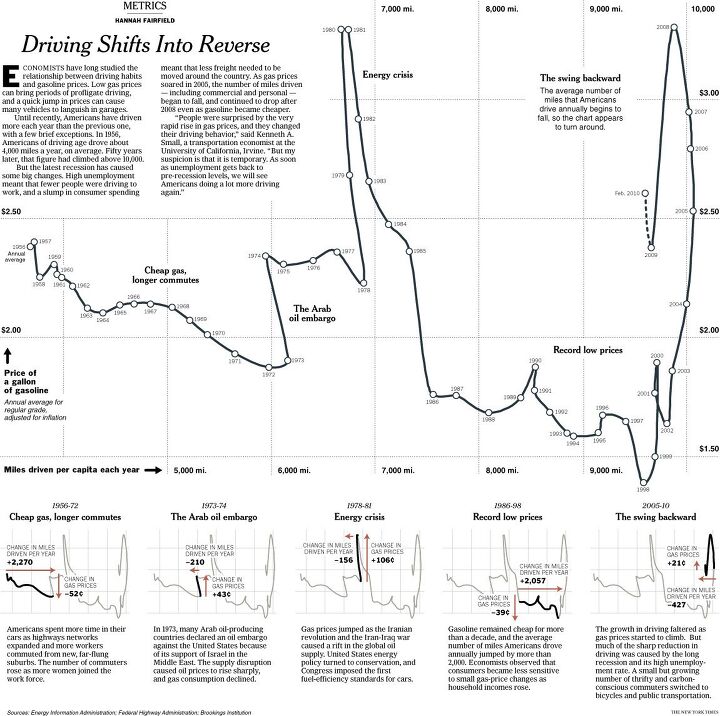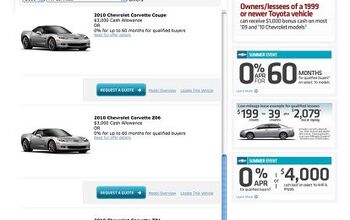5 Views
What's Wrong With This Picture: Progress, Or Something Like It Edition
by
Edward Niedermeyer
(IC: employee)
Published: May 3rd, 2010
Share
We love us some data here at TTAC, and since we’re already looking at a grip of sales data today, we thought we’d add this excellent infographic that appeared in Sunday’s New York Times to the mix. It depicts America’s per-capita miles driven on the x-axis, and the price of gasoline on the y-axis, and shows that the two aren’t as inextricably linked as some might have thought. As we try to make sense of monthly sales data and look for “the new normal,” this kind of data provides a crucial context for month-by-month trends. We hope you find it as enjoyable and illuminating as we did.
Edward Niedermeyer
More by Edward Niedermeyer
Published May 3rd, 2010 4:57 PM


































Comments
Join the conversation
Maybe, just maybe, as twotone alludes to, the perceived cost of driving a car includes more than the price of gas. In reality if you are driving 15000 miles a year your new car is probably costing of the order of 50c per mile, so 5c/mile due to changes in the price of gas is neither here nor there. Here's the Australian figures for afew cars, I think they assume 10000 miles per year. http://www.goauto.com.au/mellor/mellor.nsf/story2/5BCE0A6DD04BDAC4CA25719500188735
I like the graph. Main driver is time. People like to car it. Thats easy to explain.
It's been a long time since 9th grade...but that there ain't a function.
Well, of course there is a link. Over the years, the *real* (inflation-adjusted) price of gas has gone down. And the average number of minutes people have to work to afford a gallon of gas has gone down even more. So people travel more by car -- it doesn't take an Einstein to come to that conclusion. There's a time lag between price and consumption too, so a short-term price spike doesn't have that much of an influence. If real prices go up, many people will change their behavior. (Not all people -- just many people, and enough to make a difference). People always do. It's kinda like a law of economics, you know.